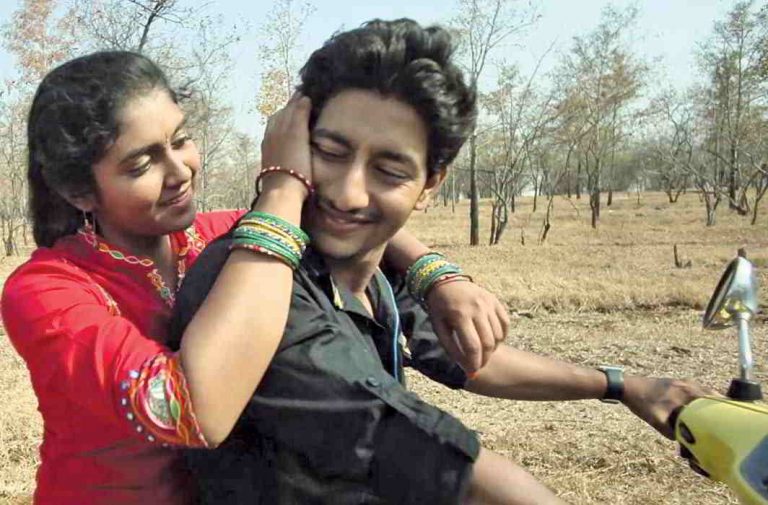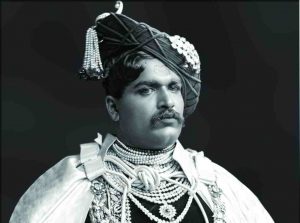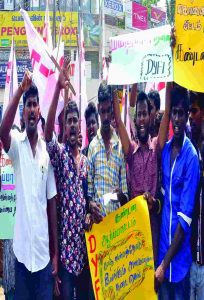
In a heartening move, the Maharashtra government proposes to come out with a new law to encourage such marriages. Cash rewards and jobs will soon be on offer for these brave couples
~By Ramesh Menon in Pune
If you were told today that a casteless society in India is possible, you would perhaps think it is too Utopian. You cannot be blamed. The social environment is such that caste lines are drawn and redrawn in India’s pockmarked political landscape. Stereotypes associated with caste exist everywhere, often putting life out of gear due to extreme ideas, vigilantism and intolerance. But Maharashtra is showing the way as it proposes to come out with a new law that will encourage inter-caste marriages.
The law—Inter-Caste Marriage Act—proposes to offer various financial incentives and jobs to encourage the marriage of inter-caste couples and usher in a society where caste no more holds sway. Incentives are also being planned for their offspring.
The BJP-led Devendra Fadnavis government, that is working on framing this law, has probably taken a leaf out of the landmark reforms initiated by the famed Chhatrapati Shahu Maharaj of Kolhapur almost a century ago. He was a visionary king who first enacted a law to encourage inter-caste marriages as he wanted to eradicate social inequality and caste barriers.

The state government officials are now working on the modalities of the Act and are likely to include a proposal where Rs 2 lakh will be deposited by the government in the accounts of children born to couples who had inter-caste marriages. This sum will be utilised for their education. The Act would possibly grant a preferential quota or a parallel reservation to the children. Once the Act comes into force, educational institutions in the state may be asked not to insist on disclosure of caste at the time of enrollment of children born to these couples. The government is likely to propose rewards for villages and communities encouraging such inter-caste weddings.
A nine-member committee, including former Justice CL Thool and BJP legislators Bhai Girkar and Mangal Prabhat Lodha, is now working on the framing of the law. Rajkumar Badole, the state social justice minister who is chairperson of the committee, said that couples who opted for inter-caste marriages were often made to suffer atrocities by their families or society as they had gone against societal norms. The new law would ensure that they are protected and their children have a more secure future.
Once the Act comes into force, educational institutions in Maharashtra may be asked not to insist on disclosure of caste of kids born to inter-caste couples.
Presently, the Maharashtra government gives a cash reward of Rs 50,000 to couples for inter-caste marriages. But it did not work the way it was intended to, say government officials. The new Act now proposes to increase this reward to Rs 5,00,000.
Like other mainline Indian states, Maharashtra also grapples with casteism. Director Nagraj Manjule in his recent path-breaking Marathi film, Sairat, shows how deeply rooted caste is in the Maharashtrian society. He weaves it around a tender love story of a high caste girl and a lower caste boy who elope. They start a family, only to be hunted down years later by the girl’s family and brutally done to death. In the last scene where both are lifeless in a blood-splattered kitchen, the message is clear: We can talk of a casteless society but reality is still cruel.
Earlier, Manjule bagged the Grand Jury Prize at the Mumbai Film Festival for his powerful Marathi film, Fandry, which embodied the essence of caste discrimination. He says that the caste system is not losing traction as it serves the interests of politicians.

Nasik-based Raosaheb Kasbe, a Dalit scholar and former professor of political science at the Savitribai Phule Pune University, says that unless caste disappears, India will never be the nation it wants to be. It is the responsibility of the government to encourage inter-caste marriages, he said.
Soon after Independence, constitutional expert Dr Bhimrao Ambedkar had advocated inter-caste marriages as a way of neutralising the vexed caste system. The challenges in getting this implemented are huge in a caste-ridden society like India. But a brave beginning has been made, though such attempts were made by kings even before Independence. Justice Thool said that though the centre had enacted the Special Marriages Act in 1954 to encourage inter-caste and inter-religious marriages to eradicate the caste system, it had not worked. Obviously, political will and implementation is the key.
Incidentally, Chhatrapati Shahu Maharaj was coronated in 1894 and ruled for 22 years in Kolhapur. He was a social reformer who believed in a classless society and pushed for primary education to all regardless of caste and creed. He offered scholarships to meritorious students from the backward classes and established Vedic schools so that students from all castes and classes can learn the scriptures and propagate Sanskrit education. He got special schools set up for village heads so that they emerge as better administrators. It is something we do not have even today. He introduced a reservation system in government jobs for the lower castes. He legalised inter-caste marriages.
When two artists, Dattoba Pawar and Dittoba Dalvi, introduced Ambedkar to him, Shahu Maharaj was greatly impressed with his ideas about the caste system that had cramped India. They met numerous times between 1917 and 1921 and discussed how they could get rid of the caste system. Ironically, we are still grappling with the anachronisms that have erupted as casteism threatens to grow deeper roots.

